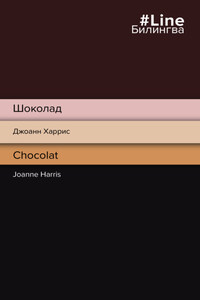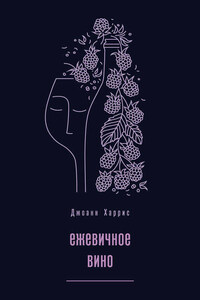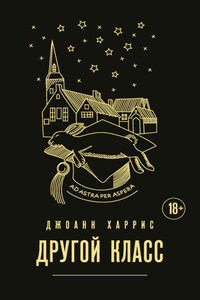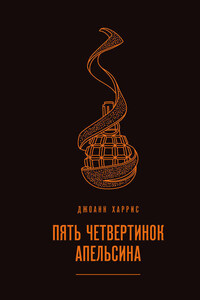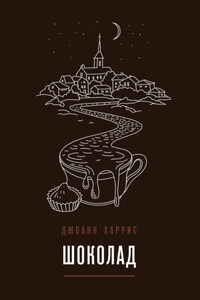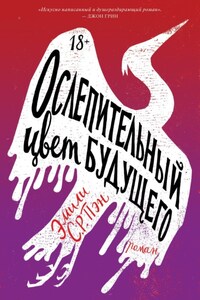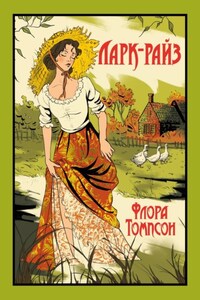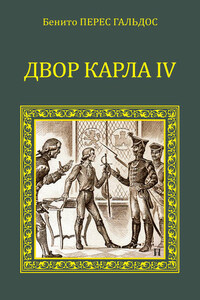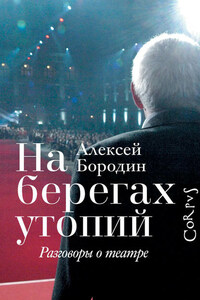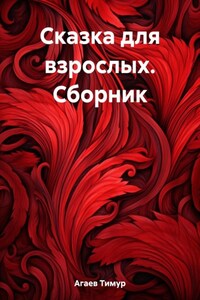1
February 11, Shrove Tuesday
We came on the wind of the carnival. A warm wind for February, laden with the hot greasy scents of frying pancakes and sausages and powdery-sweet waffles cooked on the hotplate right there by the roadside, with the confetti sleeting down collars and cuffs and rolling in the gutters like an idiot antidote to winter. There is a febrile excitement in the crowds which line the narrow main street, necks craning to catch sight of the crepe-covered char with its trailing ribbons and paper rosettes. Anouk watches, eyes wide, a yellow balloon in one hand and a toy trumpet in the other, from between a shopping-basket and a sad brown dog.
We have seen carnivals before, she and I; a procession of two hundred and fifty of the decorated chars in Paris last Mardi Gras, a hundred and eighty in New York, two dozen marching bands in Vienna, clowns on stilts, the Grosses Tetes with their lolling papier-mache heads, drum majorettes with batons spinning and sparkling. But at six the world retains a special lustre. A wooden cart, hastily decorated with gilt and crepe and scenes from fairy tales. A dragon’s head on a shield, Rapunzel in a woollen wig, a mermaid with a Cellophane tail, a gingerbread house all icing and gilded cardboard, a witch in the doorway, waggling extravagant green fingernails at a group of silent children… At six it is possible to perceive subtleties which a year later are already out of reach. Behind the papier-mache, the icing, the plastic, she can still see the real witch, the real magic. She looks up at me, her eyes, which are the blue-green of the Earth seen from a great height, shining.
“Are we staying? Are we staying here?”
I have to remind her to speak French.
“But are we? Are we?”
She clings to my sleeve. Her hair is a candyfloss tangle in the wind.
I consider. It’s as good a place as any. Lansquenet-sous-Tannes, two hundred souls at most, no more than a blip on the fast road between Toulouse and Bordeaux. Blink once and it’s gone. One main street, a double row of dun coloured half-timbered houses leaning secretively together, a few laterals running parallel like the tines of a bent fork. A church, aggressively whitewashed, in a square of little shops. Farms scattered across the watchful land. Orchards, vineyards, strips of earth enclosed and regimented according to the strict apartheid of country farming: here apples, there kiwis, melons, endives beneath their black plastic shells, vines looking blighted and dead in the thin February sun but awaiting triumphant resurrection by March… Behind that, the Tannes, small tributary of the Garonne, fingers its way across the marshy pasture. And the people? They look much like all others we have known; a little pale perhaps in the unaccustomed sunlight, a little drab. Headscarves and berets are the colour of the hair beneath, brown, black or grey. Faces are lined like last summer’s apples, eyes pushed into wrinkled flesh like marbles into old dough. A few children, flying colours of red and lime-green and yellow, seem like a different race.
As the char advances ponderously along the street behind the old tractor which pulls it, a large woman with a square, unhappy face clutches a tartan coat about her shoulders and shouts something in the half-comprehensible local dialect; on the wagon a squat Santa Claus, out-of-season amongst the fairies and sirens and goblins, hurls sweets at the crowd with barely restrained aggression. An elderly small-featured man, wearing a felt hat rather than the round beret more common to the region, picks up the sad brown dog from between my legs with a look of polite apology. I see his thin graceful fingers moving in the dog’s fur; the dog whines; the master’s expression becomes complex with love, concern, guilt. No-one looks at us. We might as well be invisible; our clothing marks us as strangers, transients. They are polite, so polite; no-one stares at us. The woman, her long hair tucked into the collar of her orange coat, a long silk scarf fluttering at her throat; the child in yellow wellingtons and sky-blue mac. Their colouring marks them. Their clothes are exotic, their faces – are they too pale or too dark? – their hair marks them other, foreign, indefinably strange. The people of Lansquenet have learned the art of observation without eye contact. I feel their gaze like a breath on the nape of my neck, strangely without hostility but cold nevertheless. We are a curiosity to them, a part of the carnival, a whiff of the outlands. I feel their eyes upon us as I turn to buy a galette from the vendor. The paper is hot and greasy, the dark wheat pancake crispy at the edges but thick and good in the centre. I break off a piece and give it to Anouk, wiping melted butter from her chin. The vendor is a plump, balding man with thick glasses, his face slick with the steam from the hot plate. He winks at her. With the other eye he takes in every detail, knowing there will be questions later.
“On holiday, Madame?”
Village etiquette allows him to ask; behind his tradesman’s indifference I see a real hunger. Knowledge is currency here; with Agen and Montauban so close, tourists are a rarity.
“For a while.”
“From Paris, then?”
It must be our clothes. In this garish land the people are drab. Colour is a luxury; it wears badly. The bright blossoms of the roadside are weeds, invasive, useless.
“No, no, not Paris.”
The char is almost at the end of the street. A small band – two fifes, two trumpets, a trombone and a side drum – follows it, playing a thin unidentifiable march. A dozen children scamper in its wake, picking up the unclaimed sweets. Some are in costume; I see Little Red Riding Hood and a shaggy person who might be the wolf squabbling companionably over possession of a handful of streamers.
A black figure brings up the rear. At first I take him for a part of the parade – the Plague Doctor, maybe – but as he approaches I recognize the old-fashioned soutane of the country priest. He is in his thirties, though from a distance his rigid stance makes him seem older. He turns towards me, and I see that he too is a stranger, with the high cheekbones and pale eyes of the North and long pianist’s fingers resting on the silver cross which hangs from his neck. Perhaps this is what gives him the right to stare at me, this alienness; but I see no welcome in his cold, light eyes. Only the measuring, feline look of one who is uncertain of his territory. I smile at him; he looks away, startled, beckons the two children towards him. A gesture indicates the litter which now lines the road; reluctantly the pair begin to clear it, scooping up spent streamers and sweet-wrappers in their arms and into a nearby bin. I catch the priest staring at me again as I turn away, a look which in another man might have been of appraisal.
